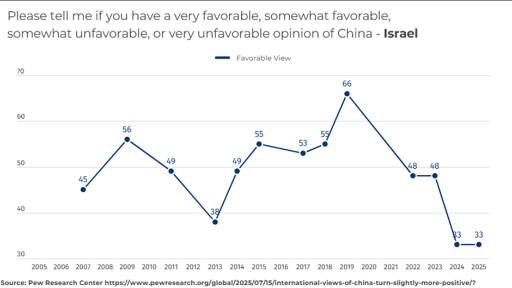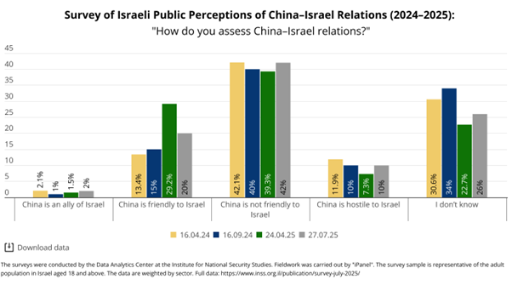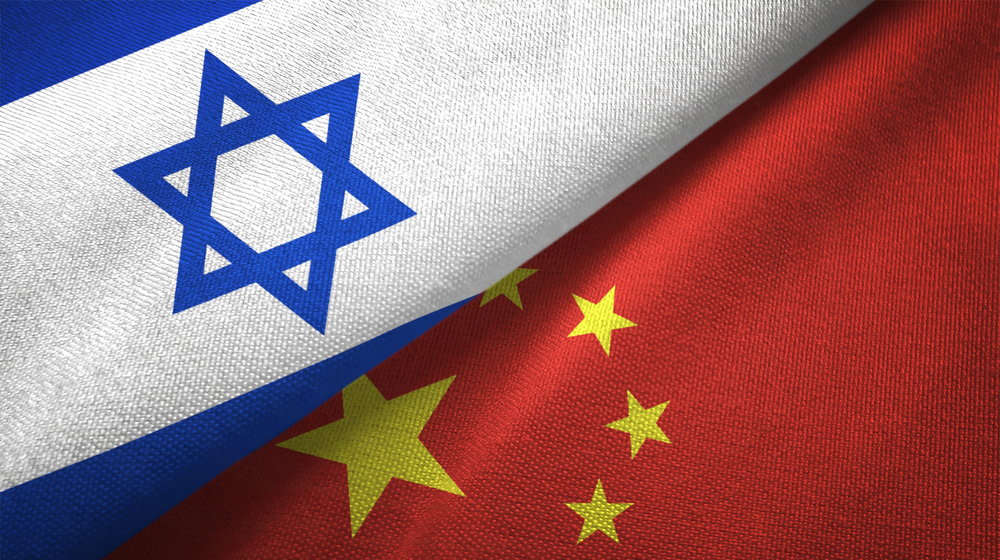On July 24, Member of Knesset (MK) Boaz Toporovsky initiated a statement, according to which “the systematic exclusion of Taiwan from international forums is unjustified and internationally irresponsible.” The statement provoked sharp criticism from the spokesman of the Chinese Embassy in Israel, who wondered “in what direction certain MKs intend to steer China-Israel relations.” Picture source: Depositphotos.
Prospects & Perspectives No. 48
Is Israel Abandoning the ‘One China’ Policy?
By Galia Lavi
On July 24, Member of Knesset (MK) Boaz Toporovsky initiated a statement, according to which “the systematic exclusion of Taiwan from international forums is unjustified and internationally irresponsible.” The statement provoked sharp criticism from the spokesman of the Chinese Embassy in Israel, who wondered “in what direction certain MKs intend to steer China-Israel relations.”
While the statement represents the latest and perhaps the most extreme move by Knesset members, it is not the first. Over the past two years, a series of events have taken place, funded by the Taiwanese mission in Israel, including donations to the Federation of Local Authorities, Magen David Adom, and ZAKA, as well as the establishment of a marine resilience ranch for the rehabilitation of victims of the October 7, 2023, attacks by Hamas. These initiatives have been accompanied by unequivocal expressions of support for Israel and complete condemnations of Hamas. Taiwan’s representative office in Israel has also initiated the dispatch of two Knesset delegations for visits to Taiwan, after which MKs issued statements of support for Taiwan, at times referring to it as a country.
‘Start-up’ and ‘Scale-up’ nations
The recent MK’s visit to Taipei yielded positive results for Taiwan. Alongside the publication of the statement, Knesset members Toporovsky (Yesh Atid) and Ohad Tal (Religious Zionism) returned from the visit full of enthusiasm about the potential for economic cooperation with Taiwan. Both MKs published posts and media articles praising Taiwan’s vibrant democracy, thanking their hosts for their support of Israel in its difficult time, and calling for stronger cooperation between the two parties, particularly in the high-tech sector. Toporovsky even declared that “Taiwan is not only a friend, but also a strategic and economic partner. Israel is the ‘Start-up Nation.’ Taiwan is the ‘Scale-up Nation.’”
The embrace of Taiwan by Knesset members has also translated into concrete cooperation. Toporovsky participated in a tour with Taiwan’s representative in Israel, Abby Lee, of the area where a missile fell in Bat Yam. Following the visit, representative Lee donated hundreds of thousands of shekels to aid the evacuees and the injured. MK Ohad Tal also took part in a similar tour in the Binyamin Regional Council, where Taiwan pledged to donate to a new medical center under construction. It should be noted that the latter pledge sparked backlash within Taiwan, as the facility is located in the controversial West Bank territory. As a result, the pledge was not carried out and was placed instead under renewed review.
Chinese discontent
Naturally, the Chinese Embassy in Israel expressed concern and resentment over Israel’s possible rapprochement with Taiwan. The embassy condemned the posts and lodged an official protest with Israel’s Foreign Ministry over the use of the term “country” in reference to Taiwan — a term that China views as an undermining of Beijing’s “ One China” principle, according to which Taiwan is an inseparable part of the People’s Republic, and to which, it argues, Israel is committed in its relations with Beijing. At the same time, China’s ambassador published several articles in the press. In his latest article, for example, he sought to articulate to the Israeli public the rationale behind China’s position that Taiwan does not constitute a country, and went so far as to plead with Israelis to oppose “Taiwan independence.”
The Israeli response to the Chinese embassy often provides the rational explanation for the actions of the Knesset members: the “One China” policy is a government policy and hence any action by Knesset members, however provocative and irritating it may be to the Chinese, is not a governmental action; visits by Knesset members to Taiwan are not official state delegations and do not represent the Knesset itself. Furthermore, the declarations of Knesset members do not call for Taiwan’s independence, but merely for Taipei’s participation in international forums where Taiwan’s knowledge and experience could be of benefit, such as the World Health Organization, the International Civil Aviation Organization, and forums dealing with climate issues. In this regard, it should also be noted that Beijing itself has previously allowed Taiwan to participate as an observer in the World Health Assembly, and benefited greatly from its experience when the SARS epidemic struck China.
Navigating a difficult relationship
However, this rational explanation reflects only part of the picture, and its emotional dimension should concern the Chinese even more, since these Knesset members’ views mirror the attitudes of the Israeli public in light of China’s official response to the October 7 massacre and the events that have taken place in Israel since that day. Beijing’s support for Israel’s enemies, while ignoring their actions, alongside sharp and explicit condemnations of Israeli measures, has not won China much sympathy among the public. In fact, Pew Research Center data indicate a sharp decline in favorable Israeli views, which fell from 48% to 33% directly after the Hamas attack (see Chart 1). Surveys conducted in recent months by the Institute for National Security Studies show that public Israeli attitudes toward China have consistently moderated throughout 2024; however, reports of arms supplies to Iran, both before and during the “Rising Lion” war, triggered a renewed decline in favorable public opinion toward China (see Chart 2). In such a public atmosphere, it is difficult to blame members of the Knesset for advancing ties with Taiwan, which has shown consistent and open support for Israel after the terrible massacre and ever since.
That said, despite all the harsh feelings toward China, members of the Knesset are expected to exercise greater judgment and responsibility. China may not be a friend of Israel, but it is not an enemy, and it should not be made into one. It should be remembered that alongside the harsh statements, condemnations, and cold shoulder from the government in Beijing, Chinese actors continued to operate and support Israel, both after the October 7 massacre and throughout the past two years. Credit should be given to the 25,000 Chinese workers who remained in Israel under the threat of missile strikes; to the BayPort terminal, which operated responsibly and efficiently, handled ships diverted from other ports, and even initiated several support measures for the Gaza-envelope communities and for the IDF soldiers; to the trade with China, which did not cease; and to Hainan Airlines, which did not cancel its flights (at least not officially) throughout the entire period. These initiatives received low media visibility compared to the activity of Taiwan’s representatives, but they nonetheless made an essential contribution to Israel’s economy.
China is a superpower of geopolitical and economic importance, and its relations with Israel are of strategic significance. Therefore, the Israeli government has no intention of altering its “One China” policy (as opposed to Beijing’s “One China” principle) to which it is committed under the agreements between the parties. At the same time, Israel should not hold back in the face of Beijing’s hostile actions toward it in the international arena. The response to Beijing should be cautious and calculated: on the one hand, to clarify Israel's position, and on the other, to avoid harming ties that are vital to its political and economic future.

Chart 1: Change in Israeli’s Perceptions of China Before and After October 7 (Pew Research Center)

Chart 2: Trends in Israeli Public Attitudes Toward China in 2024-2025 (INSS)
(Galia Lavi is a Researcher and Deputy Director, The Diane & Guilford Glazer Israel-China Policy Center, Institute for National Security Studies.)



